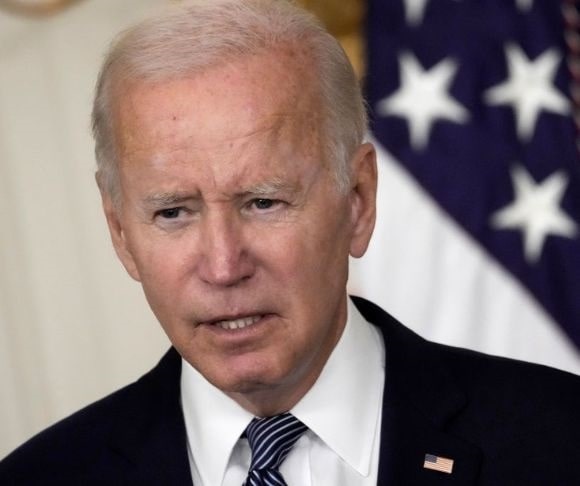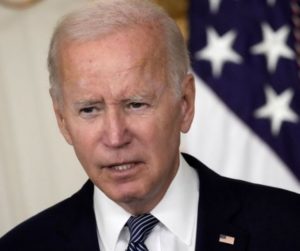
Joe Biden (Photo by Drew Angerer/Getty Images)
Democratic candidates seeking congressional office in this year’s elections are about to make themselves as busy as possible. Why? Because President Joe Biden is set to embark on a grand tour to campaign for these individuals, and they want no part of it. Contenders on the trail have already been distancing themselves from the president due to his dismal approval ratings and sub-par performance during his first two years. How much space do they need to place between their campaigns and the commander-in-chief to make a difference?
Democratic Candidates: Just Say ‘No’ to Joe Biden
 Biden is taking the show on the road and plans to travel across the country to see if he can drum up some support for Democrats running for the House and Senate. He will try to take advantage of recent accomplishments to persuade voters to keep Democrats in control of the legislature. But some of those running have indicated they are not too keen on the idea.
Biden is taking the show on the road and plans to travel across the country to see if he can drum up some support for Democrats running for the House and Senate. He will try to take advantage of recent accomplishments to persuade voters to keep Democrats in control of the legislature. But some of those running have indicated they are not too keen on the idea.
Only a few candidates have signaled that they want Biden to help them stump in their states and districts, according to a popular Washington newspaper, which reached out to these individuals to gauge their attitudes on the matter.
A spokeswoman for Senator Michael F. Bennet (D-CO) gave a hearty “[n]o comment from the campaign at this time” when asked about having the president visit.
Representative Tim Ryan’s (D-OH) operation told the outlet: “We have not asked President Biden or VP Harris to campaign in Ohio and have no plans to do so.” Communications Director Izzi Levy added: “Tim has been very clear that he wants to be the face of this campaign, and that’s not changing anytime soon.”
This is not a recent development, as other Democrats also dodged the president earlier this year. In Texas, Beto O’Rourke, who is running to unseat Republican Governor Greg Abbott, said he was “not interested” in having Biden lend his influence.
Stacey Abrams, who is challenging Republican Governor Brian Kemp in Georgia, had a rather conspicuous “scheduling conflict” when Biden came for a visit back in January. “I spoke to Stacey this morning. We have a great relationship,” he explained. “We got our scheduling mixed up.”
But a few Democrats are open to the idea, however tepidly. Senator Mark Kelly (D-AZ) gave a noncommittal response regarding the prospect. “Well, I mean, I welcome anybody to come to Arizona and let me, you know, show them around the state and, you know, the issues that we’re facing,” he stammered. “So, yeah, I mean, it doesn’t, doesn’t matter who it is.”
Nobody Likes Biden?

Joe Biden (Photo by Drew Angerer/Getty Images)
Despite the passage of the Inflation Reduction Act, what critics label a progressive agenda, designed to lower prices at the pump and in the supermarket, Democrats don’t seem to believe Biden’s presence will be much of a boon. In fact, it is not beyond the scope of reason for them to believe he might do more harm than good. History tends to bear this out.
Typically, when a chief executive has approval ratings as low as Biden’s, his party takes a sound drubbing during the congressional elections. In 2010, Barack Obama’s numbers were at 45%, and Democrats lost 63 seats in the House as a result. Even in 1994, when Bill Clinton’s rating was 46, they gave up 53. The same holds true for Donald Trump, whose 41% rating contributed to Republicans losing 40 representatives in the House in 2018.
Currently, the president’s approval is at 41%, which is an increase from 37.5% in July. Nevertheless, these numbers are quite devastating for Biden and his merry band of Democrats hoping to maintain control of Congress. It appears the left-leaning candidates are well aware of this reality, which is prompting their decision to place a Grand Canyon of space between themselves and the president.
Check out Whatfinger.com, the #1 Alternative to the Drudge


